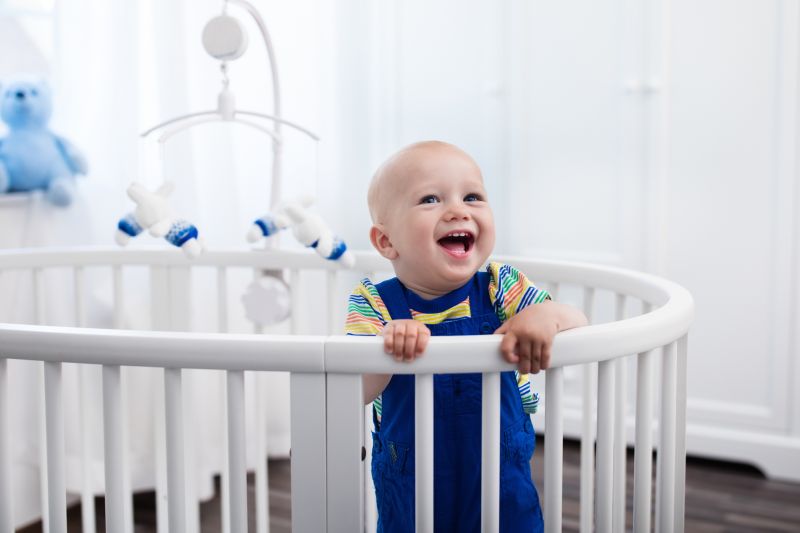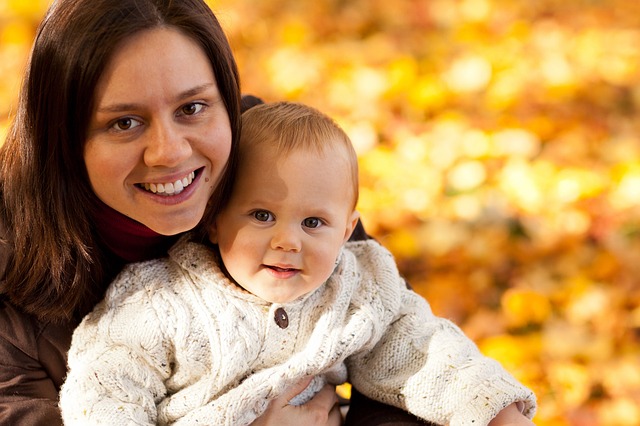Are you trying every imaginable way to teach your baby how to use the potty? Are you more and more upset each day because your baby keeps having accidents even though you’ve been potty training them for weeks or even months? Well, dear parents, you should always remember one thing: a baby can’t be potty trained, they have to grow into it by themselves! In the following article, we’d like to give you a few tips on how to handle this phase with as few problems as possible.
There are some moms who seem to think that potty training their babies is a competition and try to do it as soon as possible. But let’s think about it for a moment. Is it really worth trying to potty train a child who is around 6 months old? At that age, your baby’s nervous system is still in development. Such young children have trouble with simply holding objects and crawling on all fours, not to mention walking! And you want to teach them how to sit on a potty?
A child’s nervous system is usually unfit for any complex tasks until the child reaches around 18 – 24 months of age. Around that time, the child starts realizing that they can control their bodily functions. Babies are usually able to handle pooping first. Peeing, which is a lot more frequent, usually comes later. Girls are usually quicker in this regard and learn to control their bodily functions at around 1 year of age.

When is the right time?
Torturing a baby by forcefully holding them above the potty, yelling or even punishing them for having an accident is pointless and it can actually be counter-productive. Of course, to an adult, these things seem completely elementary and normal but, trust us, a baby really doesn’t know what they did wrong. You can begin potty training your baby when you start noticing that their diaper is dry for a longer period of time. This usually means that they’re learning how to control their bladder and they don’t simply pee every hour or two. Ideally, you want to put your baby on the potty right after they wake up, after eating or about half an hour after they drank a larger amount of water.
Has your child already mastered their bodily functions but suddenly started having accidents again? They’re probably very sensitive and react to every little change. If you’ve had another baby recently or if you’re moving, arguing with your partner or your relationship is failing, your child may sense the change and completely forget that a potty even exists. Traumatic experiences may set a child’s development back a few months and a child may even stop speaking altogether.

Potty training tips:
- Observe your baby. When you see that they’re beginning to control their bodily functions, start introducing the potty.
- Take your baby to the bathroom with you. Every child learns from their parents by example. Spread out some newspapers, sit them down on a potty, and give them a book or just talk to them, so they can imitate what you’re doing.
- Don’t show disgust over the contents of a potty. Sensitive children might be embarrassed and stop using the potty altogether.
- Praise even the smallest accomplishment.
- Teach your baby the meaning of the words ‘pee’ and ‘poo’. For example, you can emphasize them while changing their diaper. It may sound silly but think about it. How should your baby learn to ask for the potty without knowing what they’re about to do and how to tell you that they’re about to do it?
- Give your baby clothes which you can take off on their own. If you give them complicated clothes, such as overalls, an accident may happen even if they ask in time simply because it takes too long to undress.
- If your baby is at the age when they should start potty training and they are still using a diaper, throw the paper towels you use in the toilet. Comment on what you’re doing so your baby sees that these things belong into the toilet.
Potty training at the right age takes about three months. Be ready and equip yourself with a big dose of patience and understanding.